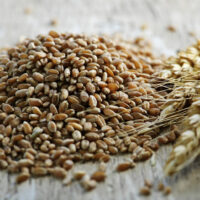
6 foods to avoid when dealing with multiple sclerosis
Multiple sclerosis is a disease in which the body’s immune system begins to attack the nervous system, and this damages the nerves and the myelin sheath that covers the nerve fibers. Consequently, the nerves begin to lose the ability to transmit signals to different parts of the body, hindering the patients’ ability to carry out everyday activities. Currently, there is no permanent cure for this illness. However, treatment can ease the symptoms and discomfort. Food choices Food plays a major role in providing the body with the nutrition it needs. Certain minerals and vitamins strengthen the body and help it fight against illnesses and infections. Even though there are no specific food-related guidelines for multiple sclerosis (MS), patients can avoid the following foods to prevent worsening the symptoms and their overall health. Saturated fats Saturated fats have been linked to multiple conditions. These include hypertension, heart disease, strokes, and even some forms of cancer. Some research also points out that saturated fats in foods may be related to the relapsing MS symptoms and even the progression of the disease. Foods that have saturated fats and should be avoided by people with MS include meat, milk, eggs, chicken skin, etc. Excess sodium/salt Research shows that high or moderate amounts of sodium/salt intake can lead to relapse of symptoms in multiple sclerosis patients, increasing their discomfort.
Read More. 














